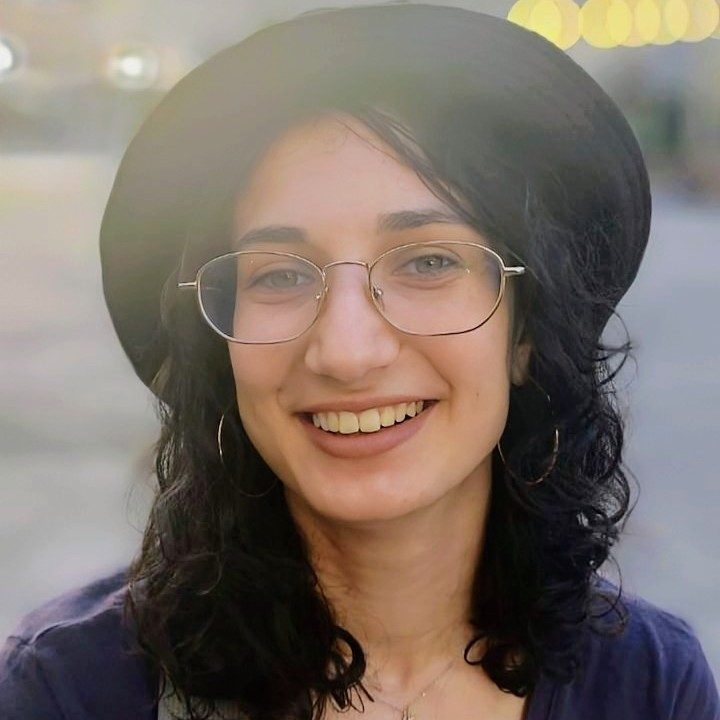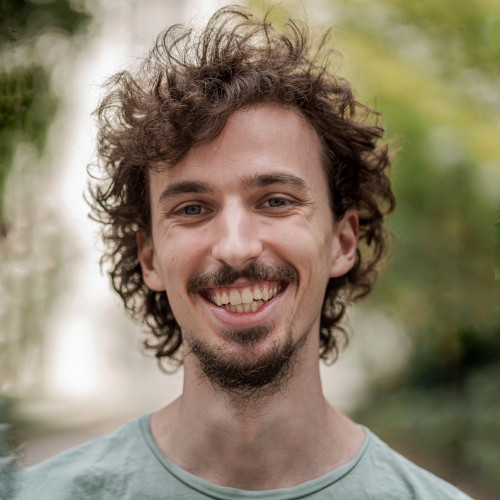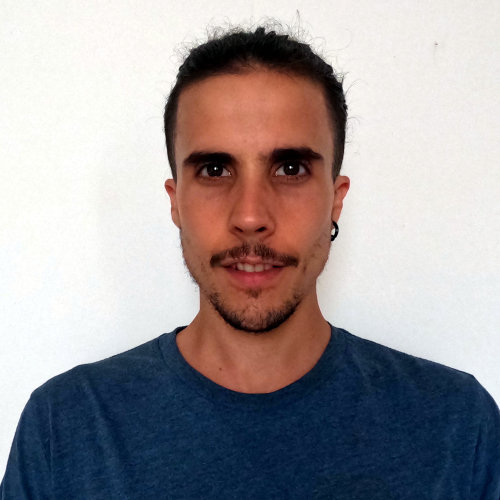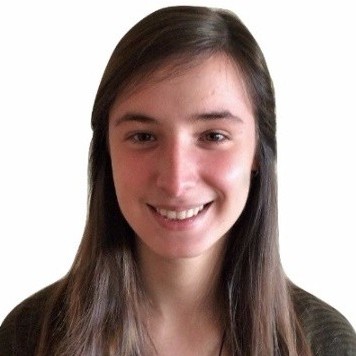Students
I am looking for motivated PhD students to join my team. For more information about available projects check
here!
Ma’ayan Armony (2024-2028)
Abstract:
Robot task planning techniques are being developed constantly, aiming to maximise the feasibility and efficiency of the generated plans, to better achieve the desired goals. Language models are being incorporated into planning strategies more frequently, and the use of LLMs to improve planners is now common. Due to LLMs training on textual corpora, in which common sense knowledge is rarely included, they lack certain knowledge which is intuitive to humans.
This PhD aims to leverage common sense knowledge graphs to increase the safety of planning approaches and the user’s trust in them. This is to be achieved by integrating knowledge about human behaviour into the planning process, whether for plan creation, evaluation, or repair.
Lennart Wachowiak (2021-2026)
Abstract:
Although more and more AI agents can explain their behavior, they do so without considering the specific individual they interact with. To make explanations and the subsequent interactions more natural and effective, we propose to make agents aware of their user's mental and affective state by attuning the explanations they give to physiological and social cues exhibited by the user.
Peter Tisnikar (2021-2025)
Capability Estimation for Adaptive Human–Robot Collaboration
Coadvised with Dr Matteo Leonetti
PhD in Computer Science, Safe & Trusted AI CDT
Department of Informatics, King’s College London
Abstract:
This project will investigate service robot adaptation across two time scales: short term scale, where the goal is to adapt to a single user, and a long-term adaptation framework, where individual user adaptation is reduced and optimised through discovering patterns and commonalities between different users. The particular focus of this project will be assistive robotics, where tasks like feeding and shoe dressing will be investigated.
The proposed output of this project is a learning framework and a behaviour adaptation algorithm that builds an interaction model with the user by inferring beliefs about the user’s abilities and physical properties from ad-hoc collaboration (table-top assistance, putting a shoe on). It then uses this learned model to update its global beliefs about any future interaction based on key insights from the single interaction. This should allow the framework to operate at very long timescales without need for recalibration or wiping of memory or experience. This work will also be underpinned by physical experiments, where a service robot will perform in a variety of scenarios that prove the framework design.
Alberto Olivares-Alarcos (2023)
Contrastive Explanations of Robot Plan Adaptation
Coadvised with Dr Guillem Alenyà and Dr Sergi Foix
PhD in Automatic Control, Robotics and Computer Vision
Institut de Robòtica i Informatica Industrial (IRI, CSIC-UPC)
Department of Informatics, King’s College London
Amar Halilovic (2024-2025)
Planning of Robot Explanations
Coadvised with Dr Senka Krivić
PhD in Computer Science
Universität Ulm
Department of Informatics, King’s College London
Silvia Izquierdo-Badiola (2022-2023)
Use of LLMs for Goal Generation and Task Adaptation in Robot Planning Problems
Coadvised with Dr Guillem Alenyà and Dr Carlos Rizzo
PhD in Automatic Control, Robotics and Computer Vision
Institut de Robòtica i Informatica Industrial (IRI, CSIC-UPC) and Eurecat
Department of Informatics, King’s College London
Nicole Lehchevska (2022-2023)
Multi-Floor Robot Navigation in Indoor Buildings (BSc Thesis) (2023)
BSc in Computer Science
Department of Informatics, King’s College London
King’s Undergraduate Research Fellowship (KURF) (2022)
Coadvised with Dr Sachini Weerawardhana and Dr Peta Masters
BSc in Computer Science
Department of Informatics, King’s College London
Elisabeth Halvorsen (2022)
King’s Undergraduate Research Fellowship (KURF)
Coadvised with Dr Sachini Weerawardhana and Dr Peta Masters
BSc in Computer Science
Department of Informatics, King’s College London
Maria Vila (2018-2019)
Autonomous User Feeding by a Physically Assistive Robot (2019)
Coadvised with Dr Guillem Alenyà and Dr Cecilio Angulo
BSc in Computer Science
Facultat d’Informàtica de Barcelona (FIB-UPC) / IRI
FIBAlumni award to the best 2019 BSc thesis in Computer Science at FIB
Abstract:
In this BSc thesis, we propose a robot capable of feeding a person autonomously. Its behavior takes into account the state of the world and the user requirements in order to decide which are the best set of actions that need to be performed in each situation.
Safe Feeding Strategies for a Physically Assistive Robot (2018)
Coadvised with Dr Guillem Alenyà and Dr Cecilio Angulo
BSc in Industrial Technology Engineering
Escola Tècnica Superior d’Enginyeria Industrial de Barcelona (ETSEIB-UPC) / IRI
Abstract:
The goal of this project is to program a robot to be able to feed a person with reduced mobility. To do so, a planning of the actions that the robot will follow will be computed, given some sensor-based inputs. These inputs will consist firstly in the detection of the dish that contains the food and the amount of food left, and secondly in the detection of the user's face and whether the mouth is open or not. Finally the motions of the robot will be designed to be natural and safe. All the movements of the robot will comply with the established regulations.








